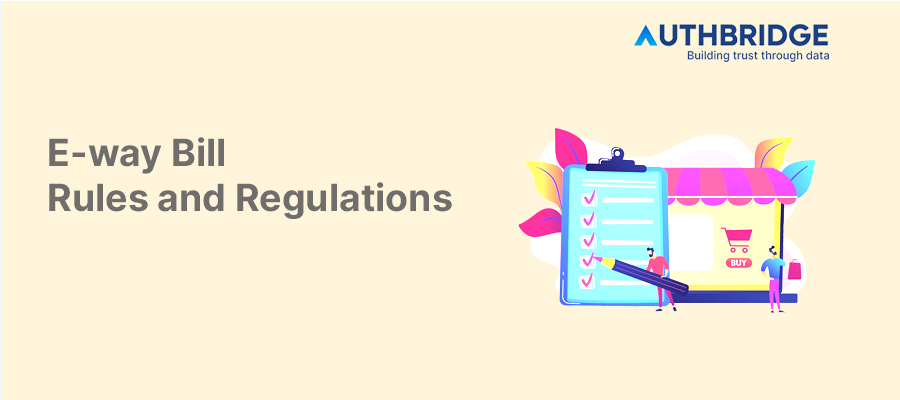Comprehensive Guide To E-Way Bill Rules And Regulations For Businesses

The E-Way Bill system under the Goods and Services Tax (GST) framework is designed to ensure the smooth movement of goods across India. It serves as an electronic pass for the transportation of goods worth more than a specified threshold value. The system aims to curb tax evasion by documenting the transfer of goods and facilitating the tracking of their movement.
Applicability and Threshold Limits
The E-Way Bill is mandatory for both inter-state and intra-state movement of goods for consignments valued over INR 50,000. This threshold includes the value of the goods plus any taxes. However, individual states have the discretion to set different thresholds for intra-state movements.
E-Way Bill Generation Requirements
When to Generate an E-Way Bill
An E-Way Bill must be generated before the commencement of the transportation of goods in the following situations:
- Movement of goods with a value exceeding the threshold limit.
- Inter-state and intra-state transfers involving supply, return, or inward supply from an unregistered person.
Documents Required for E-Way Bill Generation
To generate an E-Way Bill, the following information is necessary:
- Invoice or Bill of Supply or Challan related to the consignment.
- Transporter ID, vehicle number, or Transporter Document Number for different modes of transportation.
Transportation of Goods and E-Way Bill Validity
Validity Period Based on Distance
The validity of an E-Way Bill depends on the distance the goods are to be transported:
- Up to 100 km: 1 day
- For every additional 100 km or part thereof: An additional day
Extension of E-Way Bill Validity
The validity can be extended under certain circumstances, such as delay due to unforeseen factors. The extension must be applied for before the current validity expires.
Roles and Responsibilities
Suppliers, Recipients, and Transporters
Each party in the supply chain has specific responsibilities regarding the E-Way Bill:
- Suppliers are responsible for generating the E-Way Bill when moving goods.
- Recipients must ensure the E-Way Bill accompanies the goods received.
- Transporters are required to carry the E-Way Bill during the transportation of goods.
Consequences of Non-Compliance
Failure to comply with E-Way Bill rules can lead to the detention, seizure of goods, and imposition of penalties.
Special Provisions and Exemptions
Exempted Goods and Transactions
Certain goods and transactions are exempt from the E-Way Bill requirements, such as:
- Goods specified in the Annexure to Rule 138 of the CGST Rules, 2017.
- Goods being transported by non-motorized conveyance.
Special Circumstances and Conveyances
Special rules apply to the transportation of goods under customs supervision or seal, transit cargo from or to Nepal or Bhutan, and movement of goods caused by defense formation under Ministry of Defense as a consignor or consignee.
E-Way Bill Portal Features and Usage
Registration and Login Process
Businesses and transporters need to register on the E-Way Bill portal to generate, manage, and cancel E-Way Bills. The registration process involves providing GSTIN and other business details.
Bulk Generation and Management of E-Way Bills
The portal offers features for the bulk generation of E-Way Bills, beneficial for businesses handling large volumes of goods. This feature simplifies the management and generation process, saving time and reducing errors.
Compliance and Penalties
Compliance Checklist
A compliance checklist includes generating E-Way Bills where applicable, ensuring the accuracy of information provided, and maintaining records of E-Way Bills generated, extended, or canceled.
Penalties for Violation of Rules
Violations of E-Way Bill rules can result in penalties, including a fine of INR 10,000 or an amount equivalent to the tax evaded, whichever is higher.
Category

Abhinandan Banerjee
(Associate Manager - Marketing)
Abhinandan is a dynamic Product and Content Marketer, boasting over seven years of experience in crafting impactful marketing strategies across diverse environments. Known for his strategic insights, he propels digital growth and boosts brand visibility by transforming complex ideas into compelling content that inspires action.



